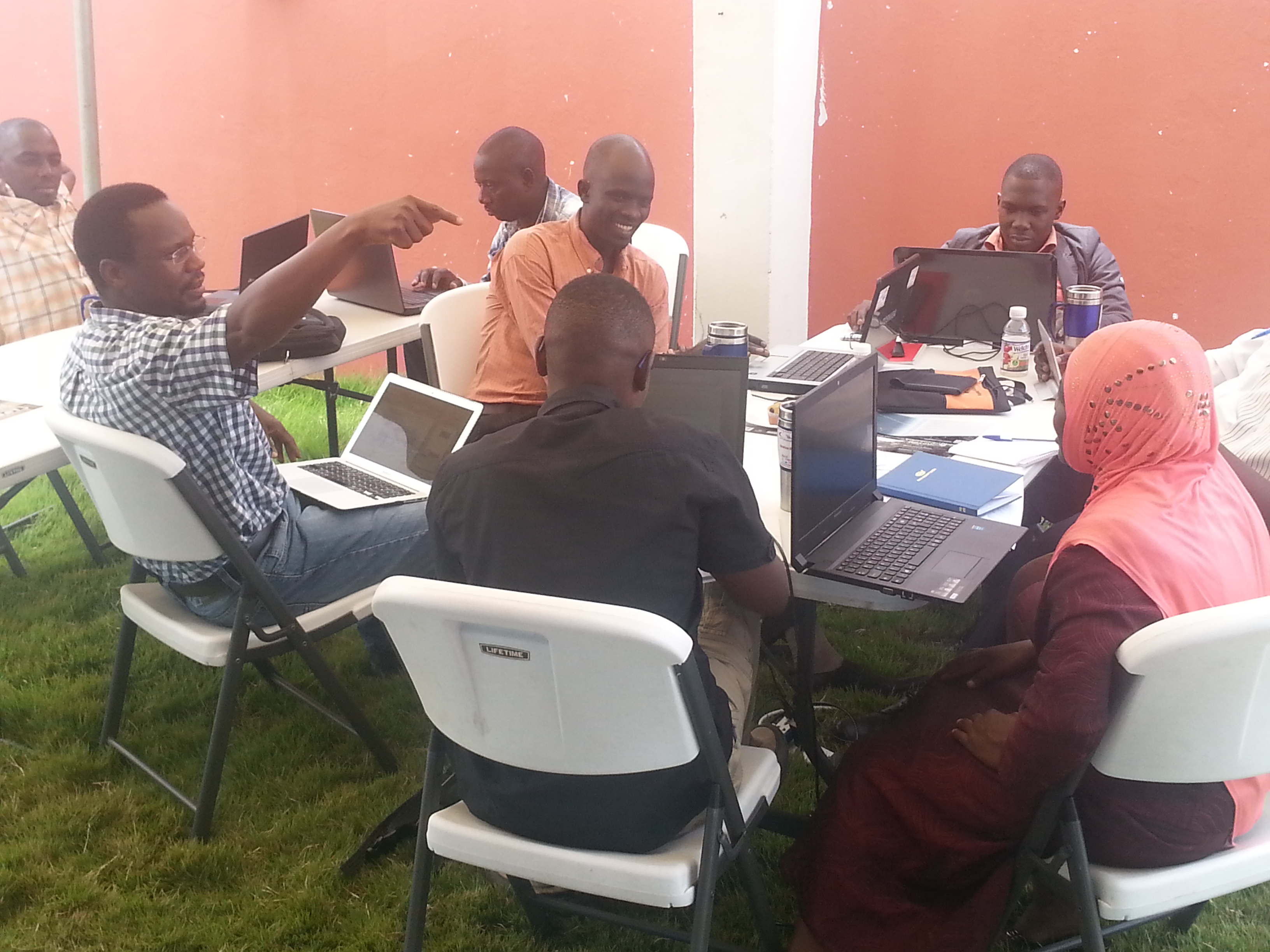
African Journalists Deepen Extractives Knowledge In Redesigned Learning Course
With over a decade of journalism experience, Xinhua News Agency senior correspondent Justice Adoboe is far more experienced than the typical NRGI media trainee. In covering the complex extractives space, however, Adoboe said he has room to grow. NRGI trainers, meanwhile, discovered the course itself had to grow and change.
“The saying goes that you can’t teach an old dog new tricks,” Adoboe said. “But here … we old dogs are learning new tricks to report [on] the extractive sector much better than we were doing.”

Bernard Tabaire (arm raised), a trainer from the African Centre for Media Excellence, leads a mentoring session for Ugandan participants.
Adoboe was among 24 journalists from Ghana, Tanzania and Uganda who took an October foundation course on governance issues in the oil, gas, and mining industries under a program on effective media oversight.
After nearly five years running a journalist-tailored training curriculum, NRGI reviewed, revised and updated course content to ensure it was fresh and responsive to journalist needs.
Organized around the natural resource decision chain, participants learned about countries’ steps toward exploiting and managing resource wealth for public good.
Sessions focused on finding and using authoritative information sources and data analysis. Journalists learned about the laws that govern extractive activities and options available to a government for managing and distributing resource revenues.
This allowed Ghanaian reporter Prince Appiah to delve deeper into the natural resource industries.
“What I knew was on the surface. I’ve been writing stories on mining but I always fell short, especially when interviewing,” he said. “I didn’t know the right questions to ask.” Reflecting on his course experience, he said, “It’s like a school. I’m learning so much. I’m happy especially with the legal and institutional framework. My expectations have been met.”
Frederic Musisi from Uganda had covered the energy beat for five years, but wanted to learn more about underlying extractive issues. Attending the training raised his level of awareness on revenue sharing, sovereign wealth and heritage funds, and ideal sector oversight. He had some understanding of the issues, he said, but he “never really bothered about the seriousness of these issues and how they’re beneficial for my country.”
The training also offered the participating journalists access to extractive industry sources like Paul Kingsley Buah-Bassuah, chairman of Ghana’s Public Interest Accountability Committee (PIAC).
Buah-Bassuah appeared as a guest speaker to talk about PIAC’s annual petroleum revenue management. His comments on the committee’s funding crisis made one of the main stories on Accra-based Joy FM in a Newsnight report by course participant Elton Brobbey.
Now in the fifth year, the program has trained 126 mostly early- to mid-career reporters in the three countries. Penplusbytes, NRGI’s local implementing partner in Ghana, hosted the 12-day regional core course. It will be followed up by three parallel 10-day national courses starting on 30 November in all three countries. NRGI partners with theJournalists’ Environmental Association of Tanzania and the African Centre for Media Excellence in Uganda.
George Lugalambi is a media capacity development officer with NRGI. Toyin Akinniyi is a NRGI media capacity development associate.
